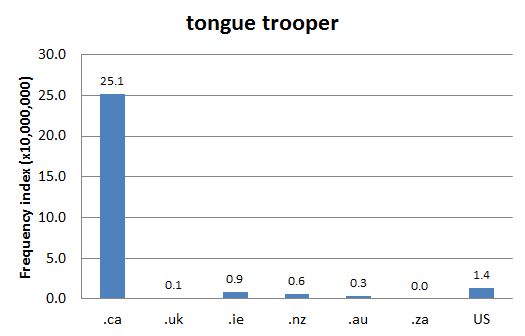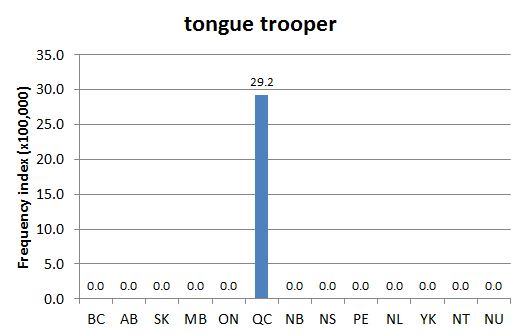DCHP-2
tongue trooper tongue-trooper DCHP-2 (November 2016)
n. — French relations, especially Quebec, informal, derogatory
language police; a nickname for the officials enforcing Quebec's provincial language laws.
Type: 1. Origin — The officials of the Office québécois de la langue française, known in Quebec English informally as tongue troopers and more often as language police, enforce the Quebec language laws, e.g. Bill 178, which requires bilingual signs to have larger lettering for the French version (see Canadian Encyclopedia reference). Boberg (2012: 496) remarks that there are no official English equivalents for French governmental terms in Quebec; e.g. even in the English media the provincial government can only be referred to as the "Gouvernement du Québec", for instance, and not as the "Government of Quebec". Tongue trooper is most prevalent in Canada according to internet domain searches (see Chart 1), especially in Quebec (see Chart 2).
See also COD-2, s.v. "tongue trooper", which is marked "Cdn".See also: language police sign law
References:
- Boberg (2012)
- COD-2
- Canadian Encyclopedia "Bill 178" Accessed 15 Jul. 2016
Images:
Chart 1: Internet Domain Search, 12 Oct. 2012
Chart 2: Regional Domain Search, 7 May 2013

